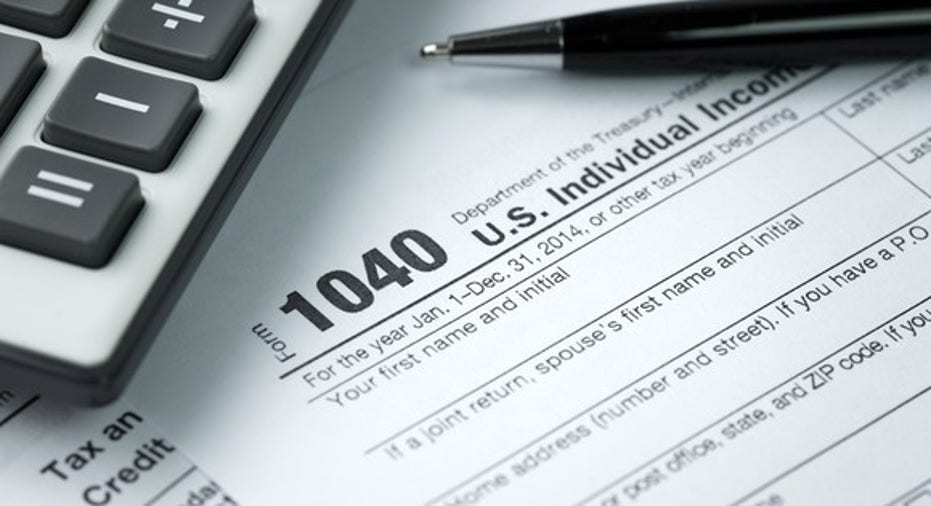What to Do if You Missed the Tax Return Filing Deadline

Not filing a tax return has some potentially dire consequences. For one thing, it's technically considered tax fraud to not file a return when you're required to do so. Unless you're a famous actor, the IRS is not likely to bring charges against you just for failing to file. However, the agency can and will levy some fairly nasty penalties against you.
Potential penalties
If you don't file a tax return, the IRS will assess a failure-to-file penalty of 5% of the amount due for the year per month that you're late, up to a maximum of 25% of your unpaid taxes for the year. You will also be hit with a failure-to-pay penalty, which is 0.5% of the amount due for the year, per month that you're late to pay. This penalty is also capped at 25% of your unpaid taxes.
If you fail to file andto pay, you're looking at a potential 50% penalty on top of what you owe on the initial tax bill. And to add insult to injury, the IRS also charges interest on late payments.
Image source: Getty Images.
Claim the free extension
Since the failure-to-file penalty is 10 times greater than the failure-to-pay penalty, it makes a lot of sense to file your tax return even if you can't afford to pay it at the moment. If you need more time to put your tax return together, you can get an automatic six-month extension by filing Form 4868. In order to fill out this form, you'll need to roughly estimate your tax bill for the year. Don't worry about getting this number completely accurate; just use what information you have to get a number that's somewhere in the ballpark. When in doubt, aim high, rather than low. If you end up paying more than you owed, you'll get a refund of any excess you paid at the time you filed your extension.
Turn in your tax return
No matter how late the tax return is, you're better off filing it than just hoping the IRS will forget all about you. That's because if you don't file a tax return at all for the year, the IRS has the right to create what's called a "substitute return" for you. The agency will use whatever information it has, including W-2s and 1099s filed by various employers and vendors, to create a tax return for you and will then send you a bill. Not surprisingly, substitute returns don't include a lot of deductions and credits, and they almost inevitably result in a higher tax bill than a normal tax return would produce.
You might be due a refund
Many taxpayers drag their feet on filing their tax returns for years when they think they will have a substantial tax bill. However, once you sit down and crunch the numbers, you may be pleasantly surprised to find that the IRS owes you money for the year. In that case, failing to file will cost you your refund. If the IRS owes you a refund, you must claim it within three years of the due date for that tax return. Miss the three-year window, and the IRS gets to hold on to your money forever. If you're still within three years of the return due date, claiming your refund is as simple as filing a tax return for that year.
If you can't pay, make them an offer
Let's say you go ahead and prepare your tax return and discover that, sadly, you do in fact owe the IRS a lot of money -- more money than you can possibly pay right now. In that case, you have two options to get the IRS off your back. First, and simplest, you can request an installment payment plan. If you owe $50,000 or less in taxes and penalties, you can apply for an online payment agreement. If you owe more than that, you can apply for a payment plan by filling out Form 9465. In either case, installment agreements typically give you up to 72 months to pay off your tax bill. Interest and penalties continue to accrue as you pay it off, so if you can pay your tax debt off sooner rather than later, you can save a lot of money.
The somewhat complicated but potentially much cheaper alternative is to make an offer in compromise, which essentially allows you to get a discount on your tax bill. If you can make a compelling case, the IRS may be willing to accept pennies on the dollar.
Consider getting help
It's wise to hire a qualified tax-preparer to help you prepare and file a late return. Since you'll likely have at least some penalties and interest to pay, the smaller the tax bill that your return produces, the better. An experienced tax-preparer can likely match you up with some good tax breaks that you would not have thought of on your own, and they can prove invaluable if you decide to make an offer in compromise.
The $16,122 Social Security bonus most retirees completely overlook If you're like most Americans, you're a few years (or more) behind on your retirement savings. But a handful of little-known "Social Security secrets" could help ensure a boost in your retirement income. For example: one easy trick could pay you as much as $16,122 more... each year! Once you learn how to maximize your Social Security benefits, we think you could retire confidently with the peace of mind we're all after.Simply click here to discover how to learn more about these strategies.
The Motley Fool has a disclosure policy.



















